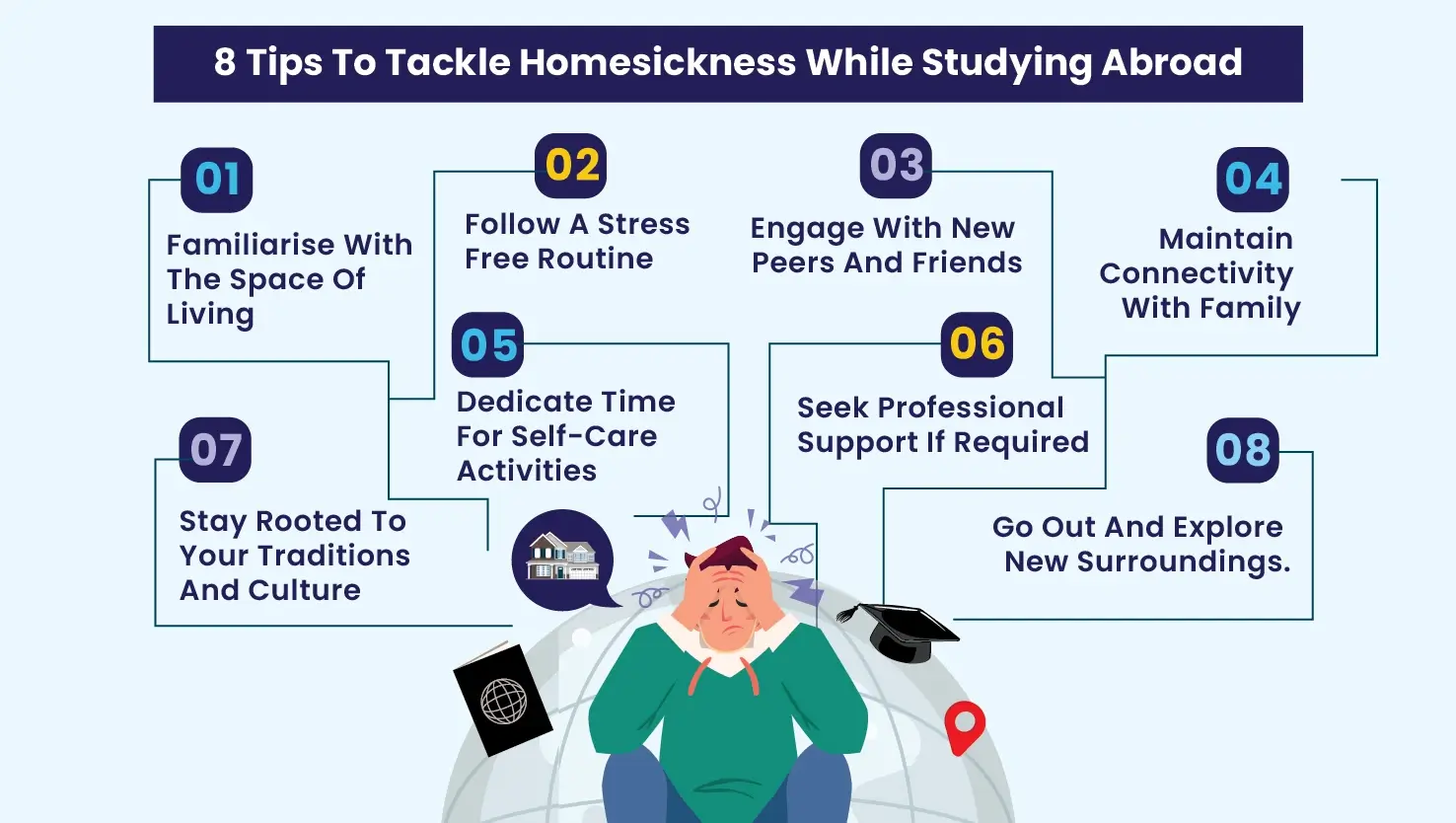
Studying abroad is no longer an opulent choice, considering students seek higher degrees in foreign lands in bulk to get quality and international exposure. According to recent surveys, it is estimated that the number of Indian students opting for foreign degrees in the UK, USA or Australia has touched a humongous number of 1.5 million, offering retrospection on how studying abroad is gaining prominence. While the craze for foreign degrees is staggering, one aspect that needs contemplation is the real struggles of students in a foreign land, dealing with homesickness.
Here, we have enlightened on such aspects, enumerating why students feel homesick and how to deal with homesickness at university with easy tips. If you want any assignment support from native helpers in the UK, contact Quick Assignment Hub today. Connect with our professionals offering expert-led and high-scoring assignments to ace your grades.
Homesickness for international students is a natural and common after-effect of moving to another country for higher studies in international universities. The sudden shift from an all-comforting lifestyle to an entirely new surrounding can be depressing, especially when alone. Dealing with homesickness, therefore, becomes a challenge that has no instant solution. Let's see some of the common reasons for homesickness for international students:
Cultural shock is a common reason for homesickness, considering you are exposed to an entirely new culture and its functioning, which is hard to adjust. From education structure and study curriculum to food habits and personal routines, you can experience a topsy-turvy situation handling the newfound culture in a foreign land.
Although you may have professional knowledge of the foreign language, expressing and understanding others’ language can be taxing. You can feel hesitant about engaging in meaningful and essential discussions that might make you feel isolated in the country.
Loss of familiar people and day-to-day curriculum and belongings can aggravate your sense of loneliness, and hence, you may crave your homeland even more. A new environment and foreign customs can make you feel like the odd one in a foreign land.
In higher studies programs, the academic pressure is bound to double up, leaving you emotionally burdened and thus longing for some homely comfort. Even financial woes in a foreign land constantly remind you of how things were easy in your homeland, making you homesick.
Also read: 10 Ways to Earn Money as an International Student in the UK
Coping with homesickness is a gradual process that requires emotional and mental adjustment to various aspects of the foreign land, being mindful, and inculcating positive habits. You can adapt some of the common and tested ways that can help you surmount the deep longings for your native country. Here's a list dedicated to homesick students to help them overcome homesickness gradually:

To distract yourself from such emotional pain from longings, you can resort to personalising your space as per your choice, which can help you stay connected to your roots. This can be by cooking a meal that you were used to eating at home, watching a movie in your native language, or decorating your space with a memorable item that can offer some solace and assist in dealing with homesickness.
It is also advisable to acknowledge your emotions openly instead of penting everything up inside while dealing with homesickness. There are many homesick students like you studying abroad going through the same ordeal, which is nothing to be ashamed of. By accepting your emotions and pain, you make way for healthy ways to overcome homesickness for international students.
It is time to put technology to good use by using it as a medium to connect with your family, friends and confidants in your native land. Maintaining regular connections with family and close ones can make you feel at home even if you are physically far from them. You can connect and share your new journey on social media or through messaging or calls to keep in touch.
Another important solution for dealing with homesickness at university is to join the university groups and clubs for extra-curricular activities. You can explore new forms of interactions and games, or get in touch with your classmates, developing new friendships. Narrate to them about your culture and glimpses of your home to build quality bonds that can aid in dealing with homesickness.
Exciting and innovative hobbies are tested ways to boost your emotional and physical functionality, which can relieve pain. If you are not outgoing, you can rely on a comforting hobby like painting, sketching, cooking or planting that keeps you busy and balances your longing pangs. You can even sneak out for private and reclusive strolls or jogging.
Looking for affordable expert-led university assignment help? Choose Quick Assignment Hub, offering high-quality and qualified professional support from native experts to address all your assignment woes. We offer 100% quality assured services that are pocket-friendly, original and with fast turnaround, making it one of the top choices for students in the UK. Delve into our top features:
We have curated a team of qualified subject matter specialist writers with vast subject proficiency and excellence in covering any topic. Our experts offer a high academic quality warranty.
Get professional and high-scoring formatting support from Phd-holding writers having extensive knowledge of all styles. Now you can ace your grades with such formatting aid.
Getting plagiarism nightmares? Time to say goodbye as we promise absolute originality and well-researched university assignments with zero chances of plagiarism.
Need urgent midnight assignment help? Do not hesitate to contact us. Get 24*7 services and assistance with the fastest assignment delivery. Now get assignments delivered much ahead of deadlines.
This session let your wallet thank you as we are offering assignment help services at highly pocket-friendly rates. You can even take advantage of our seasonal bonuses and discounts.
To sum up, while an international degree can unlock brilliant job opportunities and higher learning for students like you, sometimes shifting to a foreign land to get certified comes with a cost. Most students abroad suffer from loneliness and isolation due to their homesickness, which can also affect their productivity and concentration. You can overcome this through the tips shared here and enjoy a worthwhile academic journey abroad, knowing how to deal with homesickness at university. To avail of quality university assignment help, contact Quick Assignment Hub today and taste high success.